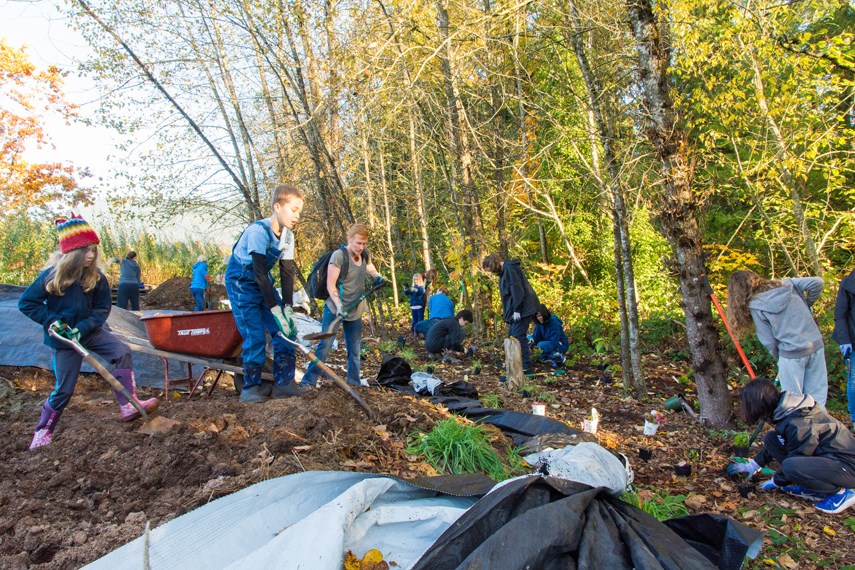The sight of people assembling wooden boxes and painting them a variety of vibrant colours at Loutet Farm this summer wasn’t just for the sake of good design and fun times.
In fact, there was a sound logic behind the colours selected when it came time to filling in the boxes, used in this case as makeshift garden plots.
“You’re looking at colours, you’re looking at shapes, you’re looking at bloom period – those are three big parts of garden design when you’re thinking about pollinators,” explains Thanushi Eagalle, interim manager at Edible Garden Project, a program administered by North Shore Neighbourhood House.
“For example, if you take blues and violets those attract a lot of bees. If you put in a lot of whites and yellows with lots of open flowers those attract beetles.”
Edible Garden Project staff and volunteers operate Loutet Farm, a half-acre social enterprise farm in North Vancouver.
For the past several months, the organization has been developing a pollinator garden project in an effort to teach and connect with the community regarding the importance of pollination not just in gardening, but in maintaining a healthy and
vibrant ecosystem.
“Pollinators play such an important role in the production of plants, whether it’s like flower production, fruit production – there’s different sorts of pollination, there’s self-pollination, wind pollination, etcetera, but insects actually play such a large role in how we are able to get our crops,” Eagalle says.
That’s why Edible Garden, alongside community partners such as Evergreen and the Environmental Youth Alliance, have planted around 500 plants in five different gardens, three at Loutet Farm and one at Squamish Nation’s Harmony Garden and another at a community garden operated by the Tsleil-Waututh Nation.
More than 600 residents, including students and longtime volunteers in the community, have participated and learned about pollinator plants during three workshops over the last few months.
Pollinator plants look especially appealing to the bugs, bees, flies and beetles that are necessary to maintain healthy ecosystems, Eagalle says.
“Native populations of bees are fluctuating and there’s actually a decline, especially in bumble bees, and bumble bees can be regarded as a keystone species when you’re looking at environmental ecosystems.”
Four more workshops are planned for the spring alongside the Edible Garden Project’s First Nations partners.
Last month, Edible Garden Project and North Shore Neighbourhood House were one of 18 organizations across B.C. to receive an EcoAction grant from the Ministry of Environment and Climate Change Canada to help fund the pollinator project.
“The different communities have taken ownership of those gardens,” Eagalle says about peoples’ willingness to help develop, maintain and learn about the importance of pollination in gardening and the environment.



